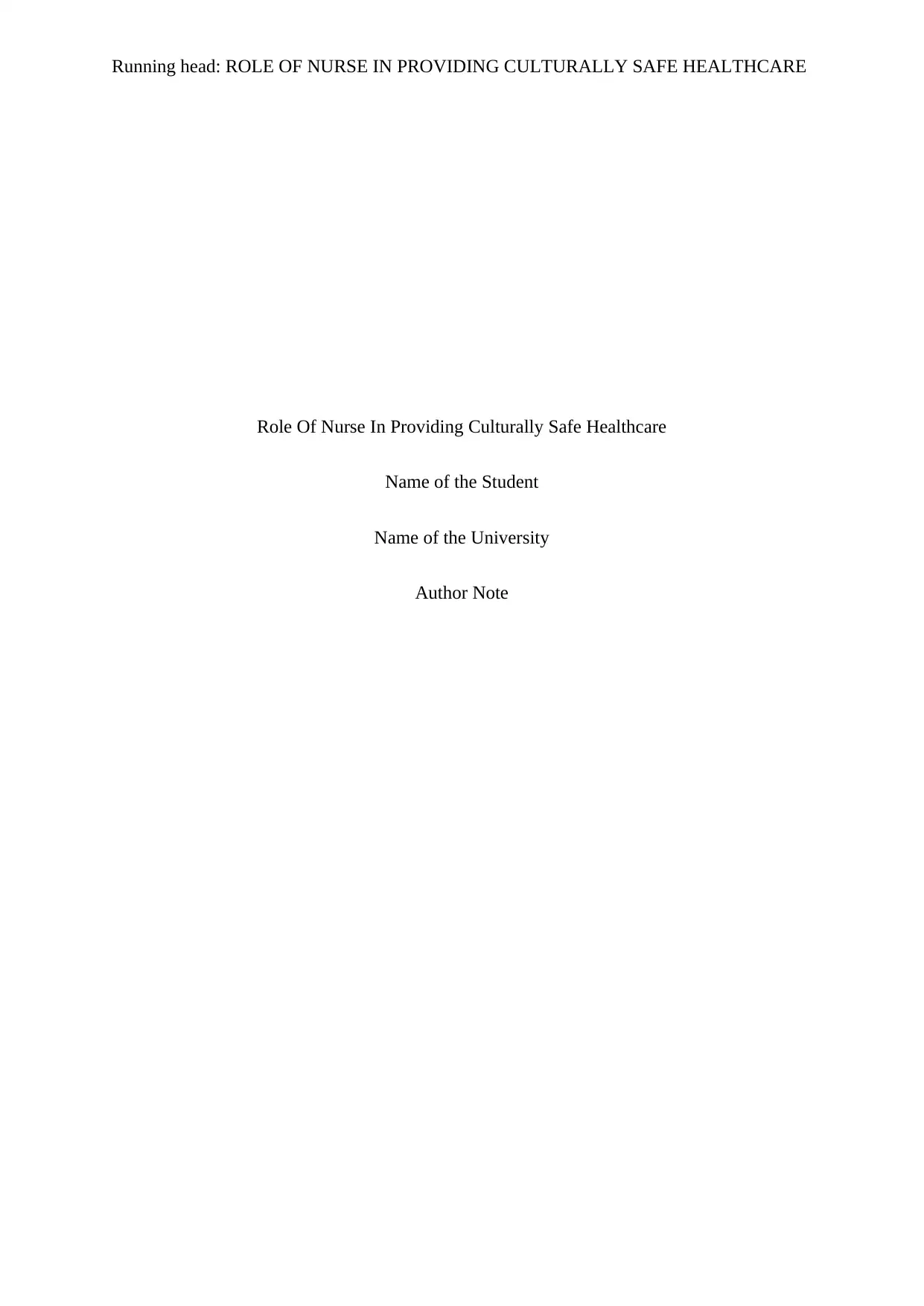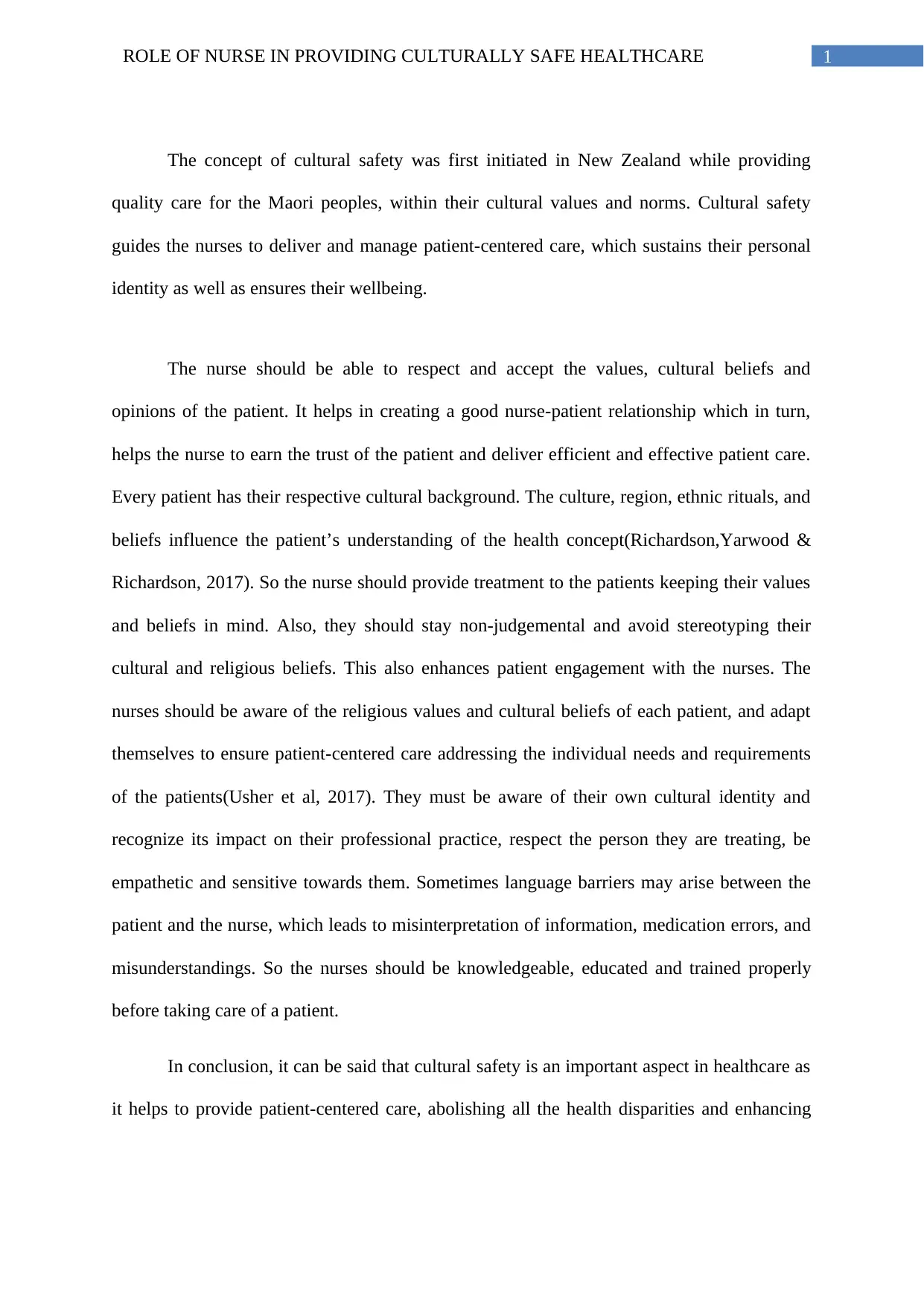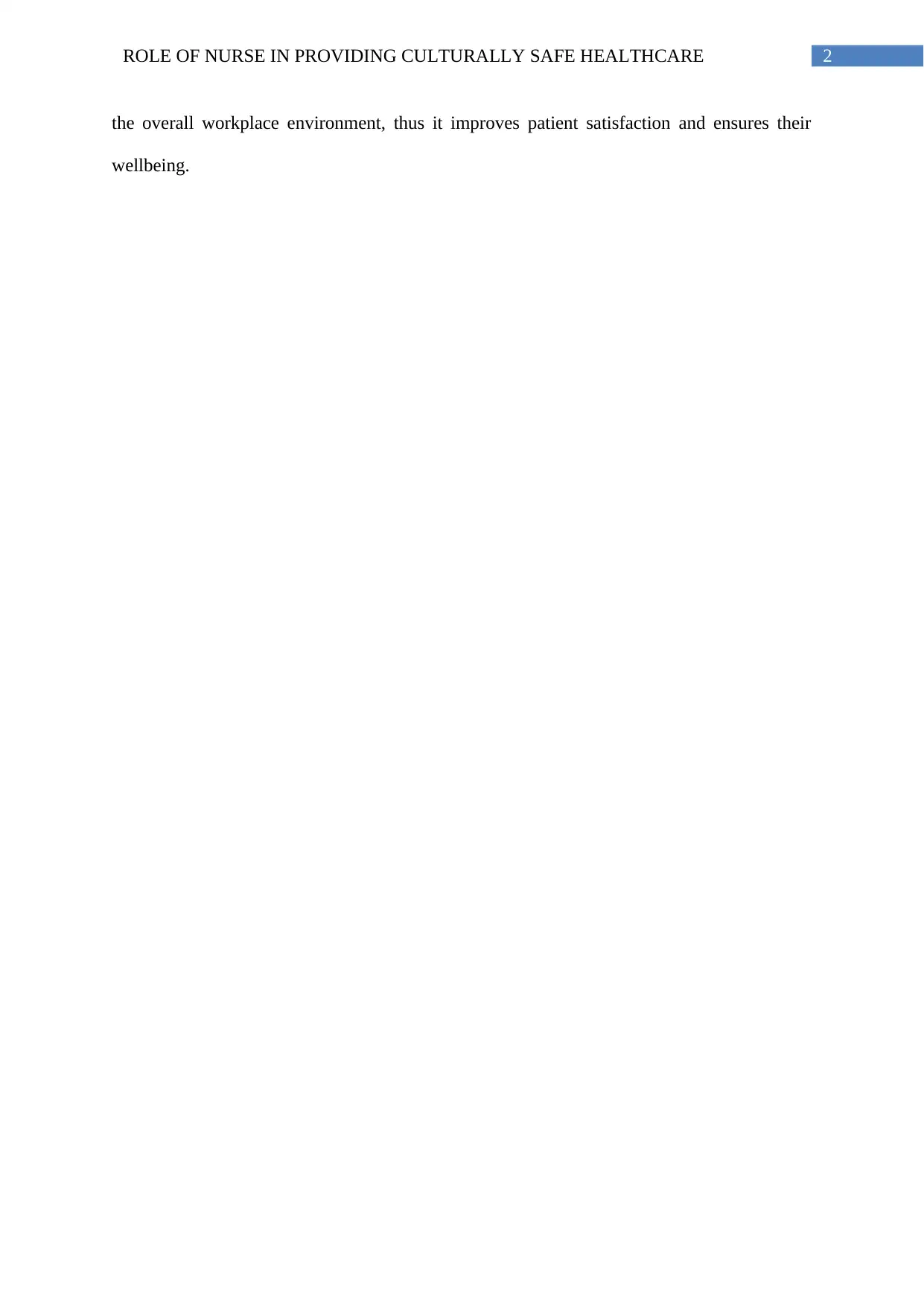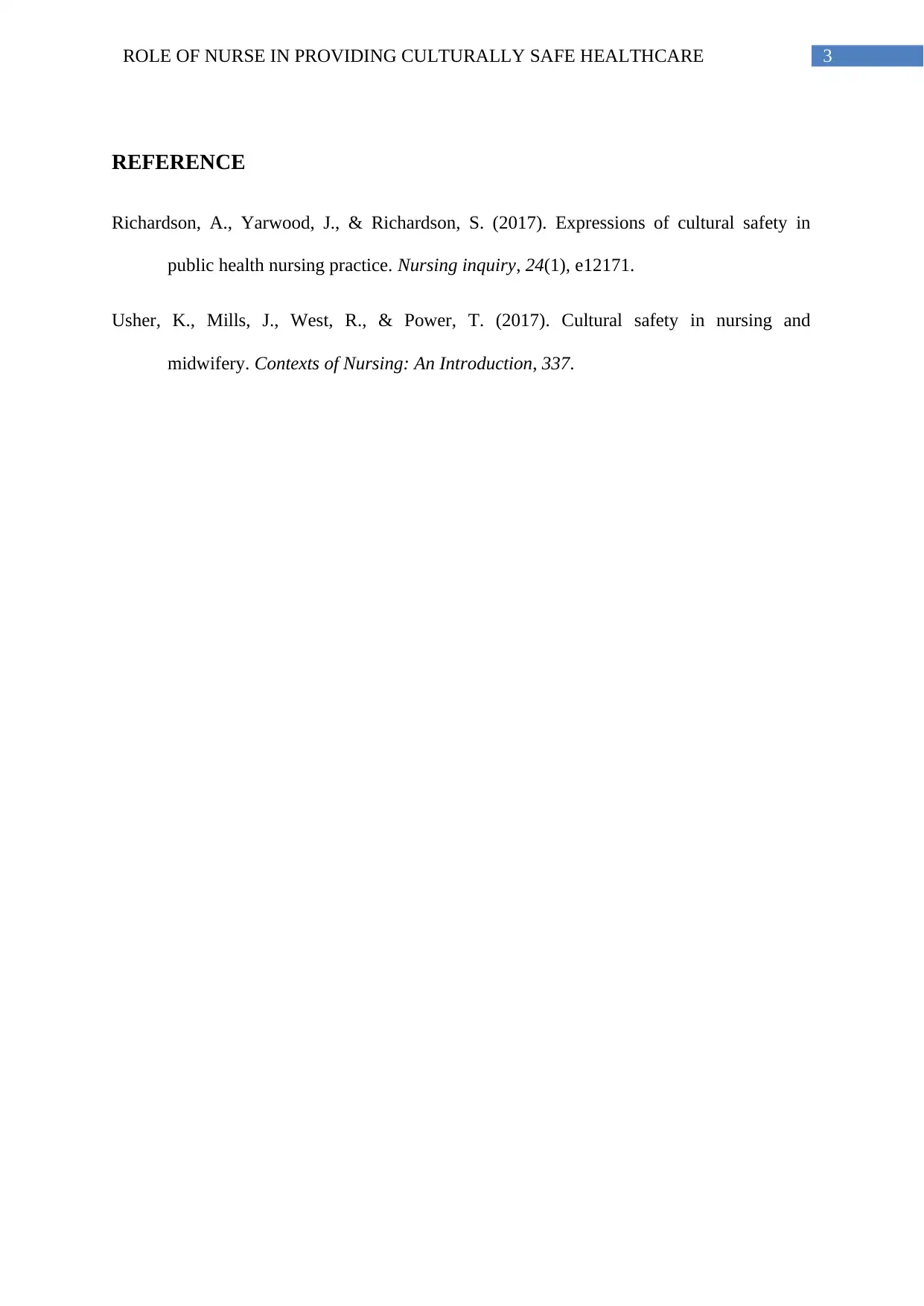The Role of Beliefs and Values in Culturally Safe Nursing Practice
VerifiedAdded on 2022/08/24
|4
|461
|29
Essay
AI Summary
This essay explores the concept of cultural safety in nursing practice, emphasizing the importance of integrating personal beliefs and values to provide patient-centered care. The author discusses the significance of respecting patients' cultural backgrounds, beliefs, and values to foster trust and effective communication. The essay highlights the need for nurses to be aware of their own cultural biases, be empathetic, and address potential language barriers to ensure accurate information exchange and prevent misunderstandings. Furthermore, the essay stresses the importance of cultural safety in healthcare settings to reduce health disparities, improve workplace environments, and enhance patient satisfaction and wellbeing. The essay concludes by emphasizing the importance of cultural safety in nursing practice, and it is a valuable resource for students and professionals in the healthcare field.
1 out of 4











![[object Object]](/_next/static/media/star-bottom.7253800d.svg)